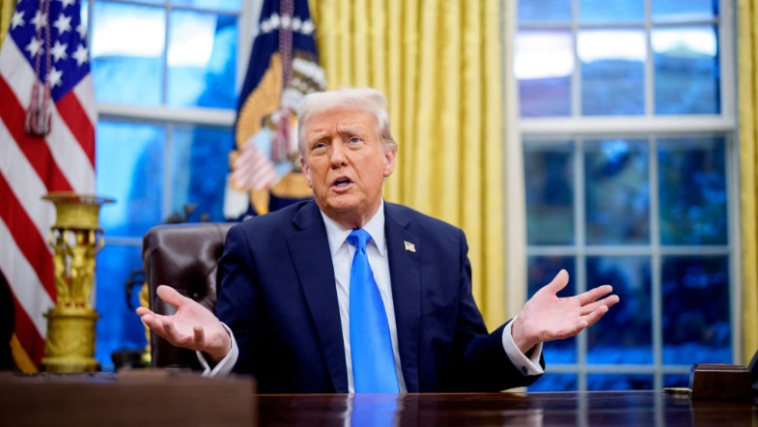President Donald Trump has announced plans to implement reciprocal tariffs on countries that impose duties on American goods, signaling a bold move to hold foreign nations accountable for trade imbalances. In a memorandum signed on February 13, 2025, Trump directed his administration to investigate unfair trade practices and take immediate action against nations that enjoy access to the U.S. market while restricting American exports.
“On trade, I have decided, for purposes of fairness, that I will charge a reciprocal tariff—meaning whatever countries charge the United States of America, we will charge them. No more, no less!” Trump stated. “For decades, other nations have taken advantage of America’s open markets while putting up barriers against our exports. That stops now.”
Exposing Unfair Trade Deals
The Trump administration has identified multiple countries that have imposed steep tariffs on U.S. goods while benefiting from lower U.S. import rates. One key example is Brazil’s 18 percent tariff on U.S. ethanol exports, while the U.S. only charges a 2.5 percent tariff on Brazilian ethanol. In 2024 alone, the U.S. imported over $200 million worth of ethanol from Brazil but only exported $52 million in return—a massive trade disparity that the administration has vowed to correct.
Commerce Secretary nominee Howard Lutnick stated that the administration’s investigation will be completed by April 1, at which point the White House will impose retaliatory tariffs as needed to level the playing field.
A Major Shift in Trade Policy
Trump’s approach marks a stark departure from the failed policies of previous administrations that allowed foreign competitors to take advantage of weak trade deals. By introducing reciprocal tariffs, Trump is ensuring that American businesses and workers are no longer treated unfairly on the global stage.
“Every country in the world protects its own industries—except the United States, thanks to weak leadership in the past,” Trump declared. “That era is over. We will no longer allow other nations to cheat us in trade deals.”
Putting America First on the Global Market
With the implementation of reciprocal tariffs, Trump is reinforcing his America First trade agenda, ensuring that foreign nations either play fair or pay the price. While globalist elites and left-wing politicians may object, the reality is that these tariffs are a necessary step to protect American manufacturing, agriculture, and industry from being undercut by foreign competitors.
The coming months will reveal which nations are willing to renegotiate trade agreements in good faith and which will resist. Either way, Trump has made it clear: America will no longer be taken advantage of, and the days of one-sided trade deals are officially over.


